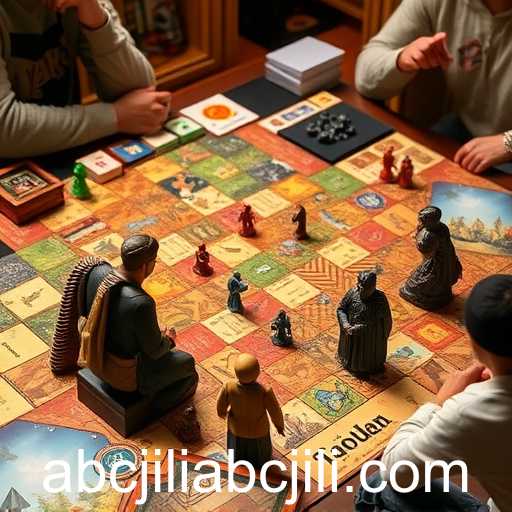An insightful exploration into the world of board games, highlighting their historical significance, contemporary transformations, and cultural impact.
Board games have been a staple of human entertainment and social interaction for centuries. From the ancient games played by pharaohs in Egypt to the modern complex strategy games, they have evolved considerably, each version reflecting cultural nuances and societal changes of its time. With the advent of digital technology, board games have not been left behind. Instead, they have embraced the opportunities provided by the online world, giving rise to a fascinating blend of traditional and digital gaming experiences. The keyword 'abcjili' might conjure images of virtual dice rolls and digital player tokens, as more board games find new life in digital formats and on gaming websites.
Traditionally, board games have played a significant role in not just entertainment, but also education. Games like Chess and Go have been used to teach strategy, planning, and patience. They foster critical thinking and social skills, as players must often negotiate, communicate, and collaborate with others to achieve objectives. These games have transcended their initial purpose of pastime to become tools for personal development and learning.
In recent years, board games have seen a renaissance, fueled by a growing community of enthusiasts and an increasing number of new, innovative games. This boom is supported by crowdfunding platforms, allowing creators to bypass traditional publishing hurdles and bringing unique ideas to market. Games like Ticket to Ride and Settlers of Catan have entered the mainstream, becoming household names and paving the way for a diverse range of board gaming experiences.
The digital transformation has also brought board games to a broader audience. Online platforms like Steam and Tabletopia offer digital versions, which allow players from different corners of the world to connect and compete. The convenience of playing virtually, coupled with the charm of classic board game mechanics, has attracted a new generation of players while allowing seasoned gamers to indulge their nostalgia. This intersection of technology and tradition has not only preserved but expanded the cultural relevance of board games.
Moreover, the rise of smartphone apps related to board gaming further illustrates this dynamic transition. An app like 'abcjili' might offer specific functionalities that enhance traditional gameplay or provide entirely new gaming experiences, combining the tactile enjoyment of physical games with the interactive possibilities of digital formats.
In conclusion, board games remain as influential as ever in both their physical and digital incarnations. They continue to entertain, educate, and bring people together, adapting seamlessly to modern technological advancements. With each new iteration and innovation, board games reflect the timeless human desire for challenge, creativity, and camaraderie.




